Postdoc programs enhance the Division of Research and Kaiser Permanente care delivery
The Kaiser Permanente Northern California Division of Research (DOR) is currently hosting one of its largest groups of postdoctoral research fellows. Each of these 11 early-career researchers is working with one or more mentors at the Division of Research to conduct research studies that have the potential to improve health care delivery at Kaiser Permanente — and beyond.
Meet our current fellows and learn about what drew them to the Division of Research.
Where were you working and/or studying before you came to DOR?
I was an emergency medicine resident at the University of California, Davis prior to joining Kaiser Permanente Northern California (KPNC). During my residency I worked with KPNC’s CREST Network, where I collaborated with research scientists at DOR.
Why did you want to be a research fellow at DOR?
DOR is a premier institution for health care innovation. I believe that the most powerful and lasting health care innovations are going to come from a learning health system such as ours. The DOR faculty are international thought leaders in their respective fields, and I’ve relied on their guidance to help me design projects that improve patient care.
Where were you working and/or studying before you came to DOR?
I was studying pharmaceutical outcomes and policy with specialization in pharmacoepidemiology at the University of Florida.
Why did you want to be a research fellow at DOR?
My interest in being a research fellow started with the appeal of Kaiser Permanente’s data, particularly electronic health record data, which is highly regarded in the pharmacoepidemiology field for its strengths in drug safety and efficacy research. As I explored opportunities that complemented my background in mental health research, I learned about the Mental Health Research Network (MHRN). This consortium, encompassing DOR and other KP sites, stood out for its impactful work. MHRN was offering a T32 training program with DOR and Henry Ford Health as potential sites. The fellowship and the opportunity to impact health outcomes aligned well with my interests. DOR’s location in my home state was a bonus, making it an ideal choice for me professionally and personally.
Where were you working and/or studying before you came to DOR?
I completed my PhD in psychiatric epidemiology at the Johns Hopkins Bloomberg School of Public Health in Baltimore, Maryland.
Why did you want to be a research fellow at DOR?
I was primarily drawn to DOR by the exceptional teams of researchers and mentors whom I’d learned of through prior collaborations and conversations with peers. The resources are also phenomenal, not only in terms of the internal and external support or the available electronic health and cohort data, but also the opportunities for career development. I’m excited to engage in new (to me) areas of research during this fellowship — for example, related to health services utilization — while continuing to investigate modifiable risk factors for autism within the KPNC Autism Research Program and Section on Women’s and Children’s Health more broadly. I’m also enjoying the great things California and the Bay Area have to offer, having previously only lived on the East Coast.
Where were you working and/or studying before you came to DOR?
I was studying at the University of Louisville, working on my dissertation research titled “Adverse Birth Outcomes: Exploring the Role of Nativity and Perceived Racial Discrimination among Black Mothers enrolled in Des Moines, Iowa Healthy Start” and working as a communicable disease investigator for COVID-19.
Why did you want to be a research fellow at DOR?
The opportunity to be a research fellow was unexpected yet ordained! As a recent graduate, I felt it was important to have great mentorship and a safe working environment that fostered growth and new opportunities as I considered fellowship opportunities, which I believe DOR provides! Alongside having a section dedicated to women’s and children’s health (my research passion), my mentor, Lyndsay Avalos, PhD, MPH, was a big reason for me coming here. Her mentorship approach is allowing me to explore new areas of research while also integrating my passion for addressing maternal and child health inequities among minority populations. In addition, I was interested in conducting clinically meaningful research, which DOR is uniquely positioned to do!
Where were you working and/or studying before you came to DOR?
Before coming to DOR, I was a PhD student in Health Policy at UC Berkeley, where my dissertation work examined health system efforts to address health-related social needs. Prior to that, I managed research and evaluation projects at the Center for Excellence in Primary Care at the University of California, San Francisco (UCSF). My projects there spanned health care improvement topics such as health coaching, team-based care, workforce experience, e-consults, and patient engagement.
Why did you want to be a research fellow at DOR?
There are many reasons I wanted to be a research fellow at DOR! First, I am excited to conduct research that can improve how care is delivered and enhance patient health. Kaiser Permanente’s extensive data infrastructure along with opportunities to partner with clinical leaders are 2 valuable facilitators for this kind of impactful research. Second, my interests in the social determinants of health strongly align with Kaiser Permanente’s mission to holistically improve health for its members and local communities. Third, I am delighted to continue learning and growing through my interactions with such knowledgeable, accomplished, and supportive mentors.
Where were you working and/or studying before you came to DOR?
I completed my PhD in Clinical Psychology at the University at Albany, SUNY, and my clinical internship at VA Palo Alto. As a researcher, I use mixed methods approaches to investigate and develop harm reduction strategies for cannabis and psychedelics use. As a clinician, I am passionate about empowering individuals who have experienced trauma and increasing community engagement with mental health care.
Why did you want to be a research fellow at DOR?
I’m currently a second-year fellow in the NIDA T32 substance use training program in the Department of Psychiatry at UCSF and at DOR. As a scientist-practitioner, I was very excited to join DOR! With the support of excellent mentorship, I am able conduct research using integrated health care systems data to improve substance use treatment outcomes.
Why did you want to be a research fellow at DOR?
As a trained epidemiologist, the DOR was an ideal fit for my research interests and provided an excellent opportunity to access large and robust electronic health record datasets serving the diverse, innovative, and culturally vibrant Bay Area. I am passionate about conducting research related to women’s and children’s health, as well as determining the health impacts of exposure to environmental contaminants during pregnancy. At the DOR, there are two participating cohorts within the NIH-funded Environmental influences on Child Health Outcomes (ECHO) program, which was a major draw for me, along with the stellar mentorship and collaboration opportunities available. The research being conducted at the DOR directly impacts health care practices and policies, and I felt that it would provide the needed building blocks to further develop my research career.
Where were you working and/or studying before you came to DOR?
Before coming to DOR, I completed my PhD in Health Policy at UC Berkeley. My research in the program focused on the equitable design and implementation of telehealth in safety net settings, such as community health centers, federally qualified health centers, and other settings that may serve disadvantaged populations.
Why did you want to be a research fellow at DOR?
While I was already doing informatics work prior to coming to DOR, I was excited to receive formalized training in this space as a clinical informatics delivery science fellow and expand my research into the equitable design and implementation of AI tools in health care. I was very excited to gain knowledge of Kaiser Permanente as it has such a unique model of care delivery and is a data-driven system that is known for providing high-quality care. I was also attracted to the position by the mentorship, career development opportunities, and support that the fellowship program offers to ensure our success as we begin our careers. Finally, I really enjoyed how everyone I talked to about the position cared about having a healthy work-life balance and acknowledged the importance of having a great personal life as well as a great career.
Where were you working and/or studying before you came to DOR?
Prior to joining DOR as a delivery science fellow, I was a PhD candidate at Brown University studying health services research with a specific focus on health economic methods. While at Brown, I applied my training to study questions related to the integration of health and social care with a specific focus on Medicare policy change, individuals managing medical complexity, and the social determinants of health.
Why did you want to be a research fellow at DOR?
Early in my graduate training, I learned of Kaiser Permanente’s innovative role in screening and intervening on food insecurity and other social determinants of health. Kaiser Permanente’s efforts to leverage its integrated system and rich data assets to better serve its members inspired me. I grew up in Northern California, and I hope my research can contribute to improving the health care experiences and well-being of my community. Therefore, given the DOR’s efforts to generate research in partnership with and then translated back into KPNC’s health system, I knew it would be a great place to work towards this goal.
Ashley Aller, MD, earned her medical degree at Oakland University’s William Beaumont School of Medicine in Rochester, Michigan, and completed her residency at the University of Chicago (NorthShore). In addition to being an active clinician, she has a strong interest in quality improvement, clinical research, and medical education.
Murtaza Mogri, PhD, has a master’s degree in bioinformatics and a PhD in bioinformatics from Stanford University. He is a delivery science research fellow, focusing on clinical informatics and developing predictive models to guide clinical care and improve patient outcomes.
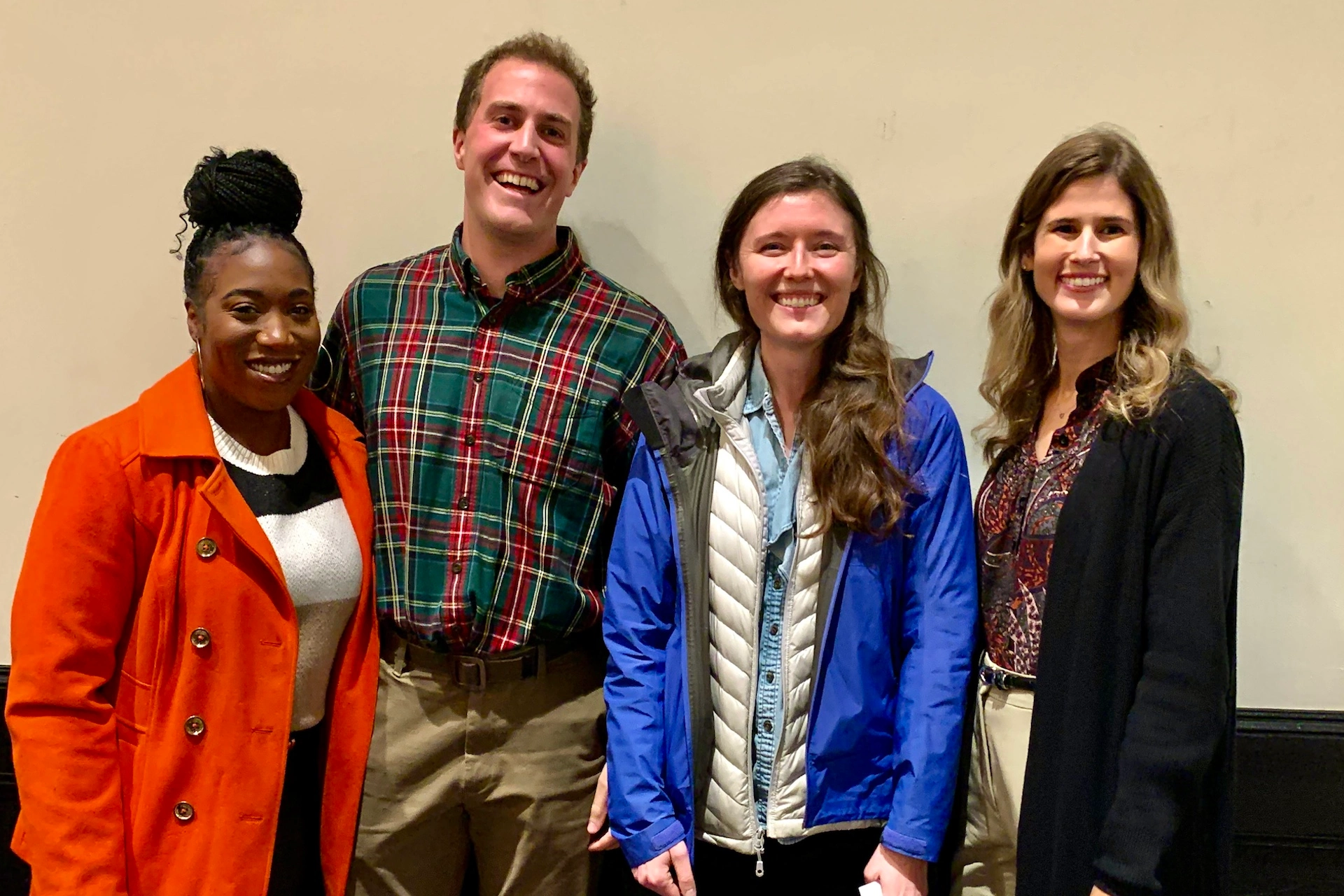
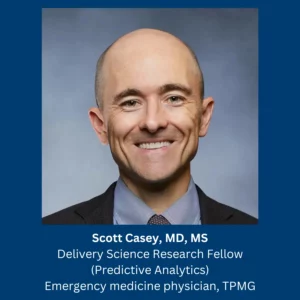
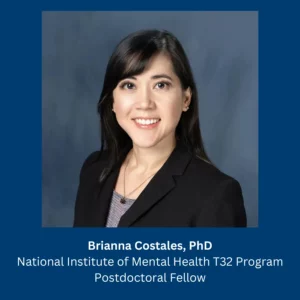
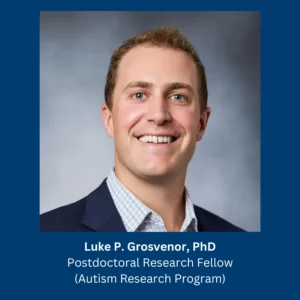
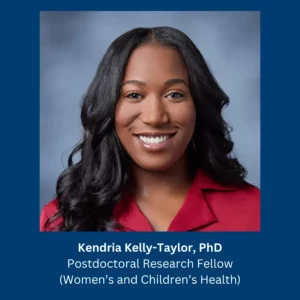
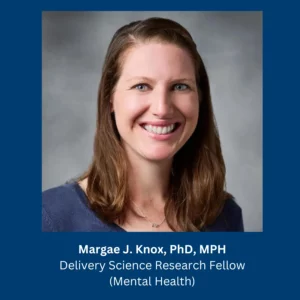
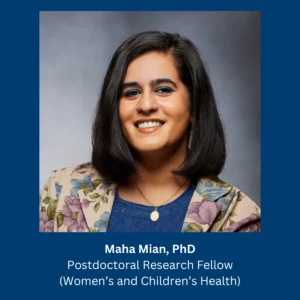
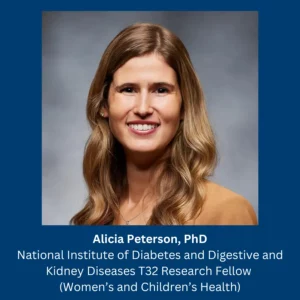
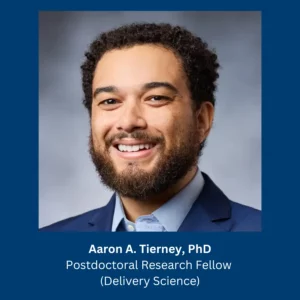
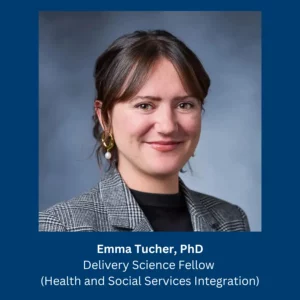
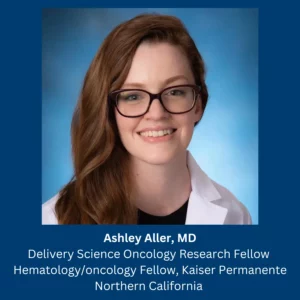
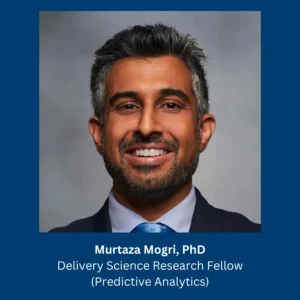




This Post Has 0 Comments